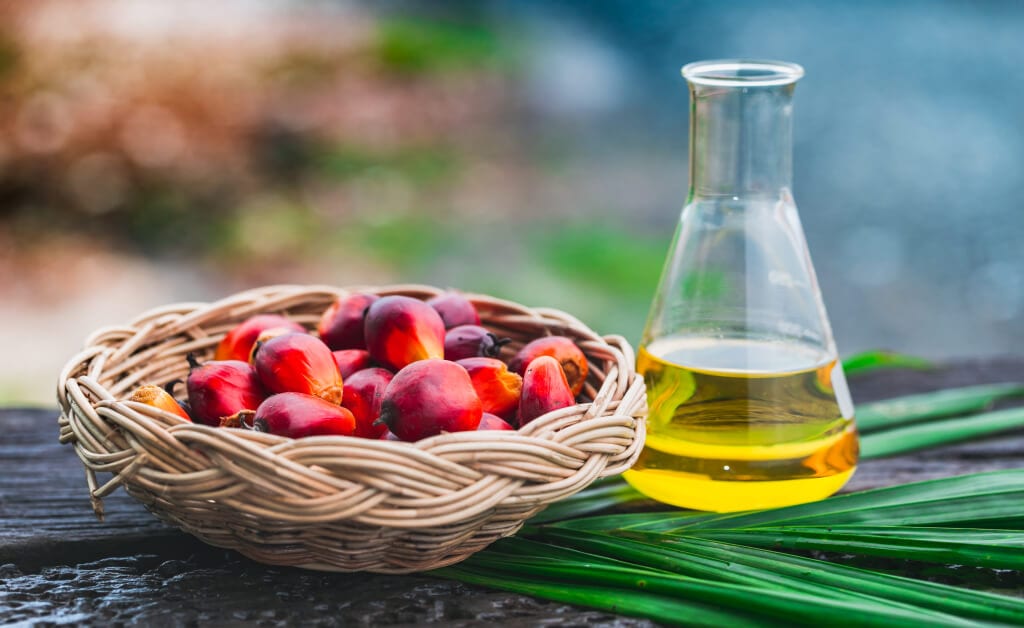
When it comes to globally traded commodities, palm oil is among the most versatile.
Palm oil is the leading vegetable oil on the global market, widely used as an oleochemical to make compounds for ingredients in dozens of products. The global market for palm oil is seeing impressive growth, due in large part to an increasing population that is experiencing its many benefits and uses. With an expected market volume of at or near 90 MMT (million metric tons) by 2028, the demand for palm oil will only continue to grow.
Palm Oil Applications
As a key oleochemical, palm oil is widely used as an ingredient in nearly 50% of packaged products in stores. The food sector is the leading application for palm oil usage, but because of its many benefits, the oil can be used to make numerous products, such as:
- Soap
- Detergents and surfactants
- Lipsticks and other cosmetics
- Skin creams
- Personal care products
- Candles
- Lubricants and greases
- Food additives and emulsifiers
- Animal feed
- Biofuel
Socioenvironmental Impacts of Palm Oil Production
Despite its health benefits, widespread use and significant market value, palm oil production has raised some questions about its ethical and environmental impacts. Sourcing of the vegetable oil has been linked to instances of deforestation, habitat destruction and water pollution, in addition to evidence of dangerous working conditions and the forced labor of children.
Numerous governments and organizations are making ongoing efforts to address these negative societal and environmental impacts through safe, responsible production practices. These organizations support certified producers and suppliers and advocate for better processes, so that palm oil can be safely and responsibly sourced and supplied now and in the future.
RSPO Certification
The Roundtable on Sustainable Palm Oil (RSPO) is a global, nonprofit organization focused on implementing safe practices and global standards for sourcing palm oil. As part of this effort, RSPO offers global certification to assure that members who produce or supply palm oil comply with sustainability requirements throughout the supply chain.
At Cremer, we are proud to be RSPO certified, a sign of our commitment to best practices, environmental awareness and compliance with important global standards.
To learn more about RSPO and the importance of its global impact, visit rspo.org.
For questions or information about any of our oleochemical products and services visit cremerna.com.